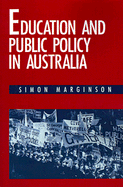2 - Human capital theory
from PART II - ECONOMIC THEORIES ABOUT EDUCATION
Published online by Cambridge University Press: 03 May 2011
Summary
Human capital theory is the most influential economic theory of education, setting the framework of government education policies since the early 1960s. After a period of eclipse, there was a major revival of human capital policy after 1985 – in more free market guise than before – led by the Organisation for Economic Co-operation and Development (OECD). The strengths and weaknesses of the economics of education are encapsulated in this body of theory. Its central assumptions have never been grounded empirically, yet they have found their way into common sense about education. This chapter is a critical history of human capital theory and policies from their beginnings in the seventeenth century.
THE IDEA OF HUMAN CAPITAL
BEGINNINGS
American economists of the 1950s and 1960s were the first to develop a science of education in which human beings are measured in terms of their monetary value: their human capital. But the practice of human capital has much older roots. It began in slavery, the characteristic form of labour in the ancient world. Slaves were the ultimate form of human capital, valued for their intelligence as well as their physical strength. In Roman life the agricultural slave was designated as an instrumentum vocale, the speaking tool, one grade away from livestock (instrumentum semi-vocale) and two from an implement, or silent tool – an instrumentum mutum (Anderson 1974: 24–5). Human capital survived the fall of the Roman empire, developing from slavery into serfdom.
- Type
- Chapter
- Information
- Education and Public Policy in Australia , pp. 31 - 54Publisher: Cambridge University PressPrint publication year: 1993



